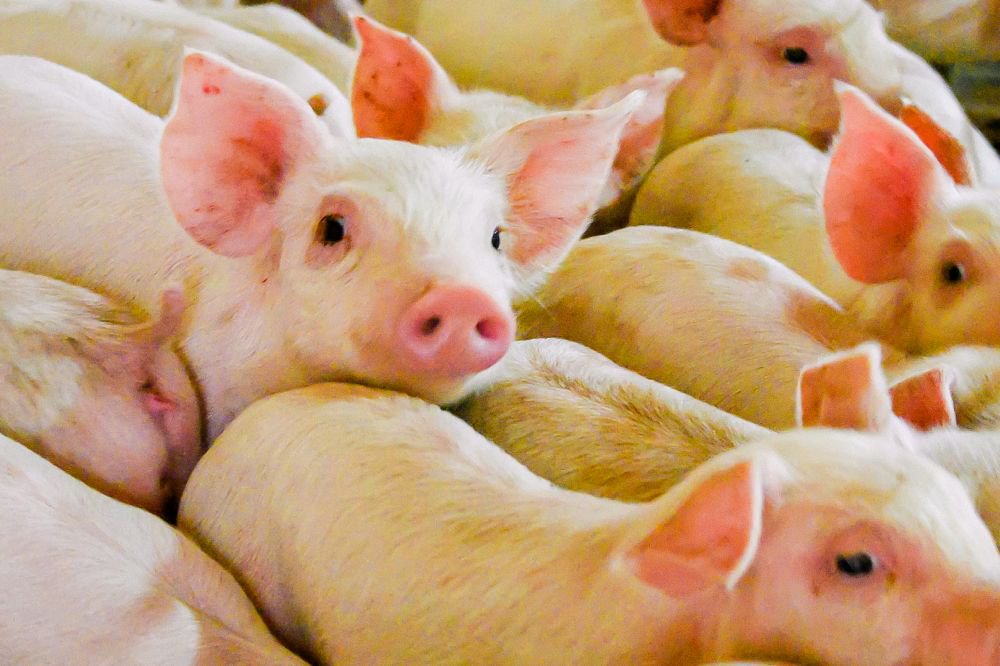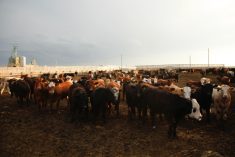Just when it appeared Alberta’s on-farm outbreak of porcine epidemic diarrhea (PED) may have been a one-off, the province has confirmed a second case.
Officials with Alberta Agriculture and Forestry on Friday announced they’ve confirmed and are investigating a new PED outbreak at a 600-head farrow-to-finish hog operation at an unspecified location.
“At this time, it is uncertain whether the first and second reported cases of PED are linked in any way,” Alberta Pork, the province’s hog producer agency, said in a separate release Friday.
Read Also

Trump tariff on Brazilian goods could jack up U.S. burger price
U.S. President Donald Trump’s plan for a 50 per cent tariff on goods from Brazil will likely raise prices for the beef that is used in American hamburgers, traders and analysts said on Thursday, as food manufacturers increasingly rely on imports during a time of declining domestic production.
Both Alberta Pork and provincial veterinary epidemiologist Dr. Julia Keenliside have confirmed the second case is not geographically close to the first, which was detected early last month on a 400-sow farrow-to-finish operation in central Alberta.
Pig traffic to and from the second site “has been stopped and enhanced biosecurity is being implemented,” the province said.
Beyond the two properties, Alberta Pork said “strict biosecurity protocols” are of utmost importance in limiting PED’s impact.
“It is especially critical during this outbreak that producers consider enhancing biosecurity on-farm and in animal transportation,” Alberta Pork said. “Producers are encouraged to submit all swine manifests, including farm-to-farm movements, in a timely manner.”
Off-farm sites such as abattoirs “should be considered as a potential source for bringing disease to your herd,” the agency added. “Producers should also consult their herd veterinarians before making shipping decisions as a precaution if herd health issues are suspected.”
Keenliside, in a phone interview Friday afternoon, hailed both the producer and the farm’s veterinarian in the second case for acting quickly when symptoms were detected, and for their co-operation in the investigation.
PED remains a provincially reportable disease in Alberta; producers and veterinarians are thus required to notify the Office of the Chief Provincial Veterinarian (OCPV) of all suspected or confirmed cases, the province said.
“If you suspect your pigs may be infected, contact your veterinarian as soon as possible.”
The PED virus (PEDv) is a coronavirus which, once introduced in a herd, causes vomiting, watery diarrhea and dehydration in infected hogs. Mortality rates run up to 100 per cent in infected nursing-age piglets but are much lower in growing hogs, which generally present with milder diarrhea.
There is no human health risk or food safety risk associated with PED, the province and Alberta Pork reiterated Friday.
The province had said Feb. 7 it was preparing to allow animal shipments to restart on a supervised basis from the first affected farm. Its investigation, it said then, “continues to suggest that the incident is limited to one farm, with no evidence of spread off of the farm.”
Environmental sampling at high-traffic sites in Alberta, such as assembly yards, abattoirs, truck wash stations and stock trailers, was all turning up negative for PED, the province said at the time.
PED made its first on-farm Canadian appearance in Ontario in January 2014. Since then, Ontario has confirmed outbreaks at 123 hog operations; its two most recent cases were confirmed Thursday at a farrow-to-finish and a finisher operation in Huron County.
Manitoba has seen over 100 infected premises since 2014, nearly all in the province’s southeast.
Quebec has reported 16 outbreaks since 2014, most recently in the Centre-du-Quebec region in April 2015 but mainly in the Monteregie. Prince Edward Island reported one outbreak in 2015. Saskatchewan has turned up environmental samples of PEDv, but no cases in hogs to date. — Glacier FarmMedia Network















